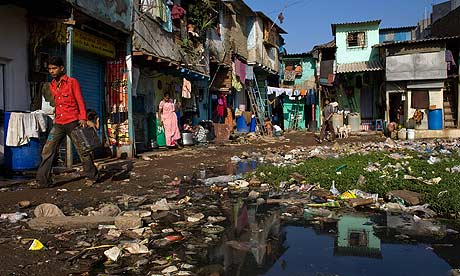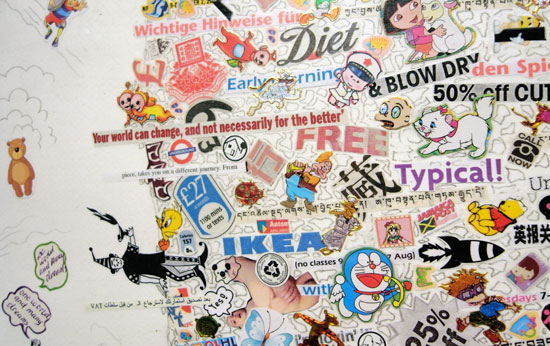
Friday, December 25, 2009
Tuesday, December 8, 2009
Battery made of paper charges up
Battery made of paper charges up

Friday, November 27, 2009
BBC News - UK and France propose climate fund for poor
UK PM Gordon Brown and French President Nicolas Sarkozy have proposed a multi-billion-dollar fund to help developing nations deal with climate change. Mr Brown said the $10bn (£6bn) fund should also be used to help developing nations cut greenhouse gas emissions. Both spoke at the Commonwealth summit in Trinidad, the last major world forum before the global summit on climate change in Copenhagen on 7 December. Many Commonwealth members are island states threatened by rising sea levels. Mr Sarkozy, with UN chief Ban Ki-moon and Danish Prime Minister Prime Lars Loekke Rasmussen, is there to give weight to any climate change statement. The topic is the only issue on the Commonwealth summit's agenda for the first day. | |
Monday, October 5, 2009
Tuesday, September 22, 2009
Friday, September 11, 2009
Wednesday, August 26, 2009
BBC NEWS | Science & Environment | What is the 2030 Perfect Storm idea?
Friday, August 21, 2009
Sunday, August 16, 2009
Tuesday, July 28, 2009
Tuesday, July 21, 2009
Wednesday, July 15, 2009
Thursday, July 9, 2009
Thursday, July 2, 2009
Monday, June 29, 2009
Sunday, June 28, 2009
Friday, June 26, 2009
Thursday, June 25, 2009
Wednesday, June 24, 2009
Friday, June 19, 2009
Tuesday, June 16, 2009
Sunday, June 14, 2009
Saturday, June 13, 2009
Friday, June 12, 2009
Monday, June 8, 2009
Friday, June 5, 2009
Thursday, June 4, 2009
Wednesday, June 3, 2009
Friday, May 29, 2009
Wednesday, May 27, 2009
To Protect an Ancient City, China Moves to Raze It

Thursday, May 21, 2009
HUD and DOT Partnership: Sustainable Communities
LINK: http://www.dot.gov/affairs/
Wednesday, May 13, 2009
Solar Hot Water for Toronto Homeowners - Green Inc. Blog - NYTimes.com

Shutterstock The City of Toronto is hatching a deal with a local utility and a clean-energy marketer to slash residential hot water heating costs.
Monday, May 11, 2009
Saturday, May 9, 2009
Saturday, May 2, 2009
EcoFaeBrick Wins Global Social Venture Competition with Cow Dung Bricks

Wednesday, April 22, 2009
Tuesday, April 21, 2009
Scientists warn sun has dimmed
The sun is the dimmest and quietest it has been for a century.

The sun is the dimmest and quietest it has been for a century.
Monday, April 20, 2009
Sunday, April 19, 2009
Saturday, April 18, 2009
Thursday, April 9, 2009
Tuesday, March 31, 2009
Monday, March 30, 2009
Mapping World Water Crisis


Saturday, March 28, 2009
Friday, March 20, 2009
Tuesday, March 17, 2009
Tuesday, March 3, 2009
Wednesday, February 25, 2009
Monday, February 23, 2009
Ulrich Franzen's 1969 film (From Urban Omnibus)
http://urbanomnibus.net/2009/02/ulrich-franzens-street/
Saturday, February 21, 2009
After the Fall
The current economic crisis, combined with environmental issues poses threats as well as challenges for designers. . Tied to the question is is the issue of consumption. Faced with new realities and knowledge of the consequences of ignorance call for us to redefine or reinstate the role of design. Design as a response to necessity vs luxury, or both, prompts us to look at use-patterns in a much wider context than what the 20th century consumerism did. There is a paradigm shift..... We as a consumer society have understood how to share our resources and exploit them selfishly. Time has come to also share our risks; design must play a significant and responsible role for the collective good.
On the other hand, recession should not mean regression.... progressive ideas come from the need to be frugal and inventive at the same time; to do more with less, is the challenge 21st century designers must embrace.
-Viren
I.D. - After the Fall
Friday, February 20, 2009
Wednesday, February 18, 2009
Sunday, February 15, 2009
Thursday, February 12, 2009
Energy Information
Data Sources
Our estimate of the impact of real-time energy feedback on carbon emissions is based on the following sources:
- Home electricity use: The U. S. Energy Information Administration estimated in 2001 that there were 107 million households in the United States using a total of 1140 terawatt-hours (TWh) per year. That gives an average of 10.6 megawatt-hours (MWh) per year per household.
- Carbon emissions from residential electricity: According to the U. S. Environmental Protection Agency, the National Average Emissions Rate for 2005 was 712 g CO2 per kilowatt-hour (kWh).
- Electricity saved with real-time feedback: There have been several studies of feedback's effects on energy use. Sarah Darby's review of the literature, The Effectiveness of Feedback on Energy Consumption (pdf) , estimates savings between 5 and 15% from direct feedback.
- Carbon emissions from cars: Again according to the EPA, a typical car is driven 12,000 miles per year, the average fuel economy of a passenger car is 23.9 miles per gallon, and a gallon of gasoline produces 8.8 kg of CO2.
Based on these figures, we get an average of 7.5 tonnes of CO2 emitted per year per household, and 4.5 tonnes of CO2 emitted per year per conventional car. So, 10% energy savings for 6 households would reduce carbon emissions by about the same amount as taking one conventional car off the road.
Wednesday, February 11, 2009
Slumdog Prince....
-Viren



































